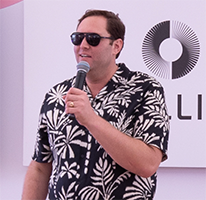(Magilla Marketing) E-mail marketers have been waiting for Michigan’s so-called child-protection do-not-e-mail registry to face a court challenge. And last week, in a roundabout way, they finally got their wish.
Michigan Attorney General Mike Cox announced he has filed charges against two companies alleging they violated the state’s child protection do-not-e-mail law.
Cox is accusing RR Media, Inc. of Cathedral City, CA, and Data Stream Group, Inc. of Bonita Springs, FL of sending e-mail promoting gambling and alcohol to addresses of children on the state’s child no-e-mail list.
Neither company returned calls for comment.
Ironically, the cases against those two companies may be the undoing of Michigan’s much-hated no-e-mail registry. The cases finally offer trade groups a chance to challenge the registry in court without paying the astronomical costs to bring a suit, said Trevor Hughes, executive director of the E-mail Sender and Provider Coalition.
“While we don’t want to see children receiving offensive messages, this offers us the opportunity to raise some of the preemption and constitutional issues that we think are at issue here,” Hughes said. “Absent someone proactively bringing a lawsuit, as has happened in Utah, the only way for us to raise our concerns is for the state to bring a suit against someone. … It costs many hundreds of thousands of dollars to challenge the registry frontally.”
Also, whether or not the companies are guilty is apparently practically irrelevant.
While spamming — especially if it involves sending inappropriate material to children — is wrong, we have laws to challenge spammers, said Hughes.
“Moreover, the preemption provisions of the Can Spam Act recognize that the right place to regulate the Internet is at the federal level,” Hughes said in an e-mail. “Multiple state laws applied to a borderless medium (e-mail) create a morass of varying standards that only serve to increase costs on legitimate businesses.
“Thus, we hope that this case will serve as a vehicle to raise important preemption and constitutional questions related to the registry. We take no position on the defendant.”
Michigan allows parents and guardians to register minors’ e-mail addresses and other “contact points” as off limits to material it is illegal for minors to view or buy, such as alcohol and gambling services.
Under Michigan law, marketers who want to include such material are supposed to scrub their customer files against Michigan’s registry once a month and remove any matching names.
Marketers contend the law puts an onerous burden on law-abiding businesses while doing nothing to stop spam.
An almost identical law is also in effect in Utah. Online pornography trade group the Free Speech Coalition is suing Utah, claiming the federal Can Spam act preempts the state’s child no-e-mail registry and that the registry unconstitutionally interferes with interstate commerce.
Last January, the ESPC, three other national advertising trade groups, and two Internet civil liberties groups uncomfortably aligned themselves with the Free Speech Coalition by filing a friend-of-the-court brief in support of the porn group’s lawsuit against Utah.
As a result of Michigan Attorney General Cox’s recent actions, the same anti-registry arguments in play in Utah’s courts can be raised against Michigan’s registry, and less expensively than if someone were to file suit against the state, Hughes said.
“We may find that this proves to be the undoing of the registry,” he said.
RR Media and Data Stream Group are the first to be prosecuted under Michigan’s year-old Child Protection Registry Act. They are subject to a fine of up to $10,000 and other penalties, according to Cox.
Hughes said Tuesday he has no knowledge of the two companies or details of their cases.
“The ESPC will be looking at these cases vary carefully, and if it is appropriate for us to participate or request leave to file an amicus curiae brief so that we can make sure the legal issues that we think are critical here are raised, we most certainly will be doing that,” Hughes said.
Cox’s press office failed to return a call for comment.
 Network
Network

